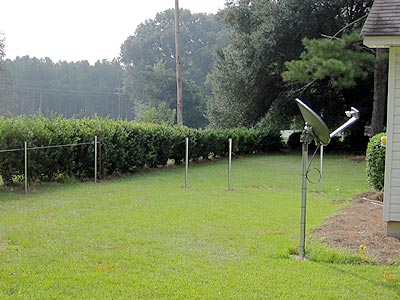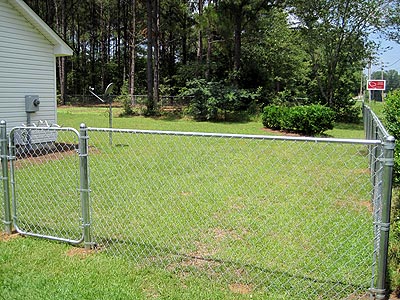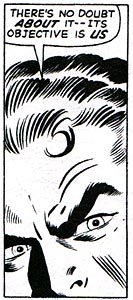Showing 11 - 20 of 23 posts found matching keyword: grammar
Thursday 12 April 2012
Bloggers like me have to think about a lot more things than blog readers like you. Besides what important topics I need to write about, I also have to consider which words in each sentence should be Capitalized. Should "potatoe" be spelled without the final "e"? And nothing I have to say is more important than how I punctuate it!
Take the so-called Oxford comma. Some people call the Oxford comma a serial comma, but I find that it tastes terrible in milk. If you didn't know, the Oxford comma is the comma appearing immediately before the final item in a series as demonstrated here, there, and everywhere.
I was taught in high school by an ironclad woman named Barbara Landreth that the Oxford comma should always be used always. Always. However, while The Oxford Style Manual still endorses the comma it named, it seems to me that most bloggers don't care for it anymore. It certainly doesn't help that newspaper reporters have shunned use of the Oxford comma, but look where that attitude has gotten them.
"Walter," I hear you say, "it's 2012. Everyone texts now; no one cares about stupid commas anymore!" Well, you should. That extra comma really clarifies quite a bit. Take the following examples and consider how their meaning would change with the addition of an old-fashioned Oxford comma:
Martha Stewart's former cellmate says the most important elements of a good Halloween party are the guests, crackers and spooks.
In a national election for the President of the United States, the American people will never elect Mormons, liars and criminals, unless they have no other choices.
She introduced me to her favorite body parts, Dick and Peter.
Oxford commas. They're not just for breakfast anymore.
Comments (1)
| Leave a Comment | Tags: barbara landreth grammarThursday 29 December 2011
While browsing the internet to find the etymology for the neologism "trickeration" -- currently my least favorite word in the English language -- I discovered that Jason Taylor has announced that he will retire after Sunday's game. So the horrible 2011 season will claim one last player before it's all over.
Taylor will retire with the second most starts ever as a Miami Dolphin. If Taylor hadn't spent one season each with the Redskins and Jets, he'd need only 1 more season to pass Dan Marino's 242 games as a Dolphins' starter. Seeing as this is the year that the most significant of Marino's remaining passing records falls, it seems a missed opportunity not to eliminate his other records from the books. At the rate that the Dolphins discard their players these days, perhaps that's the Marino record that is truly unbeatable.
This is the fifth time I've blogged about Jason Taylor. It will probably be the last, if Taylor is smart enough to stay away from an organization that rewarded him with a trade to the Redskins just 1 year after the NFL made Taylor into a 26-feet tall robot. It's a shame that Taylor can't ride off into the sunset with a championship ring, but that's what happens to modern Hall of Famers in Miami. It sucks, Jason, but you just sort of get used to it.
Comments (0) | Leave a Comment | Tags: 2011 sucks dan marino dolphins football grammar jason taylor nfl the greatest quarterback ever to play the game of football
Thursday 1 December 2011
In the past month, researchers at Yale University released a study revealing that sugar-sweetened soft drink manufacturers, especially Coca-Cola Company, have drastically increased their marketing to young children in recent years. The American Beverage Association responded: "This report is another attack by known critics in an ongoing attempt to single out one product as the cause of obesity when both common sense and widely accepted science have shown that the reality is far more complicated."
In the past month, researchers employed by the University of Oklahoma concluded a study that links consumption of sugary drinks with heart disease in women. The American Beverage Association responded: "This type of study cannot show that drinking sugar-sweetened beverages causes increased risk for cardiovascular disease. It simply looks at associations between the two, which could be the result of numerous other confounding factors."
In the past month, researchers in the U.S. Substance Abuse and Mental Health Services Administration calculated that American emergency room visits related to energy drinks have increased more than tenfold in in the past 6 years. The American Beverage Association responded: "This paper is a troubling example of statistics taken out of context. The number of emergency room visits by people who consumed energy drinks, as reported in the paper, represented less than one one-hundredth of 1% of all emergency visits."
In the past month, researchers for Consumer Reports found that 10% of commercially available apple juice exceeded the federal standard for arsenic in water. The American Beverage Association responded: "In fact, this latest report once again uses federal drinking water standards in its analysis of juice -- in no way comparing apples to apples and only creating confusion."
Today, the John C. Whitehead School of Diplomacy and International Relations at Seton Hall University will present their 2011 Global Citizen of the Year Award to Susan Neely, the President and CEO of the American Beverage Association. The American Heritage Dictionary responded: "irony (i'·ro·ny): 1. The use of words to express something different from and often opposite to their literal meaning. 2. An occurrence, result, or circumstance notable for such incongruity."
Comments (0) | Leave a Comment | Tags: coke grammar irony news science
Wednesday 6 April 2011

Yeah, I have questions. First of all, who ever decided that it was a good idea for the state to fund domestic violence? Is there a pro-domestic violence lobby? Personally, I don't think domestic abusers should get any more rights than anyone else. Stay out of our bedrooms, government!
Secondly, what kind of picture did funding draw, anyway? With a headline like that, I'm going to need to see some pictures, especially since I doubt this paper's ability to describe the story with words. The subject ("funding") and verb ("draw") aren't in any more agreement than the state of funding domestic violence. "Funding" is an uncountable noun and should be treated as a singular noun; "draw" is a plural verb. What's the excuse for this? There's plenty of extra, unused column width, so it's not like they ran out of room for the "s" on "draws."
And third, just what page is this?

Maybe nobody reads newspapers anymore, but it is starting to look like nobody writes them, either.
Comments (0) | Leave a Comment | Tags: grammar newnan news
Thursday 18 November 2010
The 2010 New Oxford American Dictionary Word of the Year is "refudiate," meaning "to reject." My spell-checker wants to change that word into "repudiate," which makes sense, since "refudiate" is nothing more than a typo in a Twitter feed back in July. We now have a new, completely unnecessary word in our dictionary. This bit of political genius/manipulation will now be bloating the reference aisles on our national bookshelves with as much bullshit as is typically reserved for the self-help section.
The enemy here is not, surprisingly, Palin. This bit of trivia may be lost to history, but Sarah Palin herself attempted to correct her initial typo to "refute," the word she presumably meant to Tweet. Rather than let Palin get away with her mistake on Twitter -- where grammar goes to die -- her followers and detractors forced her into owning the mistake as intentional in order to save political face. She's relatively innocent in this fiasco. Sure, she could be smarter and not send messages to the public realm without reviewing them for mistakes, but that's probably asking too much.
No, the enemy here is the New Oxford American Dictionary. Damn you, Oxford University Press dictionary editors. Throwing a political figure's mistaken and jumbled words words back at them is a tried and true political tactic with great lineage. ("Potatoe" and "misunderestimate" spring to mind.) Mudslinging may have a storied tradition in American politics, but let's not start treating the weapons used as anything other than what they are: mud. If Oxford University Press includes words like "refudiate" in their dictionary, all they are doing is dirtying their own reputation.
Therefore, I refudiate the inclusion of the word "refudiate" to my automated spell-checker's personal dictionary. It already has a hard enough time with the perfectly cromulent words that I've already added such as "truthiness," "unfriend," and "wriphe." I mean, come on, it's not like my hard drive has all the space in the world.
Comments (0) | Leave a Comment | Tags: dictionary grammar politics rant refudiate trivia
Friday 17 September 2010
According to MSN.com, the Air Force has a Special Forces technology development program codenamed BATMAN. That sounds pretty cool until you read that BATMAN is an acronym for "Battlefield Air Targeting Man-Aided kNowledge." As a Special Forces operative, are you really going to trust equipment built by a bunch of comic book geeks who can't even spell "knowledge"?
They couldn't come up with a word starting with the letter "n" to finish that acronym? Napalm, network, necromancers, necessities, neo-warriors, nightcrawlers, nodes... nothing? iNexplicable and eNigmatic kNavery like these iNaccurate Names really twist my kNickers in a kNot.
Comments (0) | Leave a Comment | Tags: batman grammar news
Monday 2 August 2010
I've been busy this past week installing a fence at my brother's home in Dublin, GA. I've been calling it a cyclone fence, but you probably know it as a chain link fence. Turns out that cyclone fence got that name from the Cyclone Fence Company of Waukegan, IL, a trademarked brand now owned by U.S. Steel.

So I've been committing the same error as people who call a copy a Xerox, facial tissue Kleenex, a hook and loop fastener Velcro, and soda Coke. (For those paying attention, the grammatical error of substituting the specific for the general is called a metonym.) Worse, Cyclone Fence was initially a northern brand (though the concept of the chain link fence was invented by the British), so I have unwittingly been using a Yankee word! I apologize to ya'll for this error and will try to correct my usage in the future.
P.S. I'll post a picture of Trey's fence once I've developed my the pictures still in my kodak.
[UPDATE 08/03/10]: Pictures. Note the DirecTV dish in all three pictures for site reference.

Start of Day 1: It doesn't look that big, right? Next time you shovel the concrete.

Start of Day 2: I lost track of how many fence posts after I was attacked by the fire ants.

Start of Day 3: Another day, another $12.74 worth of rebar to fix what we did wrong on Day 2.
Comments (0) | Leave a Comment | Tags: diy dublin fence grammar trademarks trey trivia
Tuesday 17 November 2009
Facebook wins again: the 2009 New Oxford American Dictionary Word of the Year is "unfriend", a term that apparently defined "to remove someone as a 'friend' on a social networking site such as Facebook." Now in addition to promoting the decay of polite society, Facebook is ruining my language.
"Unfriend" was chosen over such universally accepted words as "netbook," "sexting," "tramp stamp," and "teabagger," which it turns out is now used with a complete lack of irony to describe participants in the Tea Party movement. (Let's just say that "teabagger" means something completely different where I come from.) This proves the voice of Facebook dominates that of the traditional mass media, at least within the offices of the New Oxford American Dictionary. And yes, Google assures me that the publisher of the NOAD, the Oxford University Press, does indeed have a Facebook page. Not that I'd go to Facebook to confirm it. Sure, that may be bad journalism, but I've got my principles.
Comments (0) | Leave a Comment | Tags: dictionary facebook grammar internet unfriend
Monday 12 October 2009

Yes, comic books can also be textbooks! Though it may not seem so at first, Reed Richards, the so-called "Mr. Fantastic" and self-described genius, is correctly using the word "myself" in the above panel.
According to my Unabridged Second Edition-Deluxe Color Webster's New Twentieth Century Dictionary (which surprisingly has color on only 16 of 2,305 pages), the word "myself" is defined "a form of the first person singular pronoun, used: (a) as an intensive; as I went myself; (b) as a reflexive; as I hurt myself; (c) as a quasi-noun meaning 'my real, true, or actual self'; I am not myself when I rage like that." While the Quicksilver may use the first example sentence and the Incredible Hulk the third, Mr. Fantastic is clearly interested in hurting himself, so to speak.
In Reed's sentence, "myself" is an intensive pronoun referring to the sentence subject, "person." If Reed had said "I have that qualification myself," there would be less confusion, but super geniuses just don't talk like common people. For the sake of clarification, consider the following sentence diagram (don't look at me like that; sentence diagramming is way more fun than Sudoku):

So there you have it: proof that repeating anything that Mr. Fantastic says is not only melodramatic fun, it's also grammatically correct. It really gives us all something to think about, doesn't it?

Comments (0) | Leave a Comment | Tags: comic books fantastic four grammar
Tuesday 31 March 2009
A follow-up to my last post:
In my last entry, I referenced vulcans. I've wondered since if the word should have been capitalized.
Mr. Spock, the logical first-officer of the U.S.S. Enterprise and inspiration for my comment, is the result of a mating between a humanoid of the planet Earth and a humanoid of the planet Vulcan. Mr. Spock is frequently referred to as a capital-"V" Vulcan by his colleagues. And here is where I made my erroneous assumption: the English name of his actual race is never clearly established.
Calling Mr. Spock a Vulcan is the same as calling Captain Kirk an Earthling, i.e. a resident of the planet Earth. As residents of a particular planet, Vulcans and Earthlings deserve their capitalization. However, Captain Kirk is as much an Earthling as a kangaroo rat, fruit bat, or camel spider. (Note the lack of capitalization of the common names of those species.) Captain Kirk, more specifically, would be described as a human. Based on the context of dialogue overheard exchanged between Mr. Spock and his ship's doctor, one Leonard "Bones" McKoy, I assumed that Mr. Spock must represent a race commonly called vulcan, hence my lack of capitalization. But this now appears to have been a mistake. Damn it, Bones, you're a doctor, not a linguist!
A little research reveals that Vulcans call themselves V'tosh or whl'q'n in their native tongue. Clearly, words that hard to pronounce would be bastardized or ignored by English speakers. In fact, the language, like the people, the planet, and practically everything else associated with them (including nerve pinches!), is simply called Vulcan by almost everyone the crew of the Enterprise ever encounters. Were I an apologist, I'd blame these quirks of language on the weak programming of the Universal Translator. (Clearly vocal recognition software is as crappy in the 24th Century as it is today. But any computer is only as good as its programmer, right, Dr. Daystrom? [See Star Trek episode 53, "The Ultimate Computer" for details.])
So, in hindsight, I should have capitalized the word Vulcan. On the up-side, I don't have to apologize to anyone, as being a logic-driven Vulcan means never having to say "I'm sorry."
Comments (0) | Leave a Comment | Tags: grammar star trek

